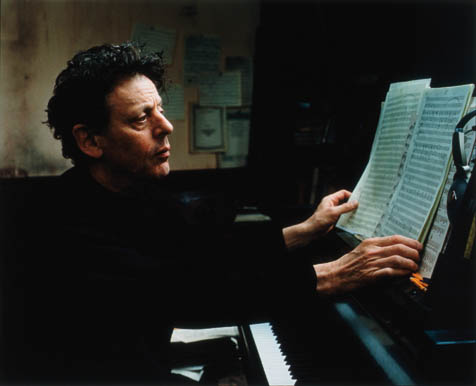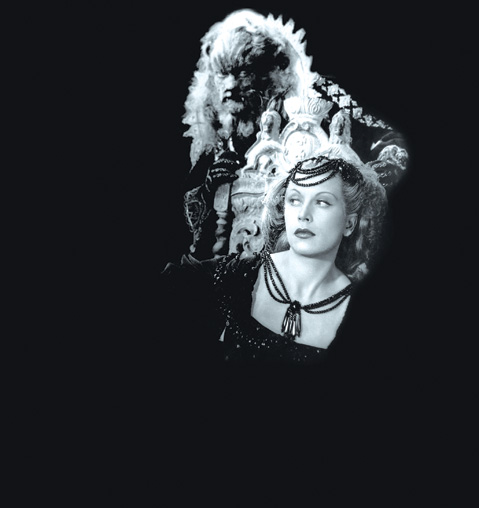The Philip Glass Ensemble Rescores La belle et la bête
UCSB Arts & Lectures Brings Film and Live Music Together on April 30

There are operas on film. There are films about opera. But Philip Glass’s Beauty and the Beast is a unique creation: an opera not only inspired by a cinematic classic but also designed to be experienced simultaneously with the original.
“No one had ever done this before: take a talking film, turn off the soundtrack, and create a new one from start to finish,” said Michael Riesman, who has been part of the project since its inception in 1995. He will conduct the Philip Glass Ensemble in a live performance of the score — accompanied by the film, of course — this Wednesday at the Granada Theatre.
The film is the 1946 classic La belle et la bête, directed by Jean Cocteau — a genius whose work Glass found continually inspiring. As Riesman noted in a recent interview, the composer turned one Cocteau screenplay into a more conventional opera and another into a ballet/opera. For this one, he decided to overlay new music onto the ethereal imagery.
“It was quite a complicated process,” Riesman recalled. “[After we received the first draft of the score] we found there were lots of problems. The bed of music was okay, but the vocal parts weren’t close enough [to the actors’ dialogue] to be convincing. I thought we needed to at least do as good a job as a badly dubbed film. The right person’s mouth had to be moving!
“Sometimes we shifted the vocal line; in other cases, we threw it back to Philip, who would totally rewrite the section. This went on for weeks. We were already in rehearsals, so it was pretty scary. Fresh pages were coming in daily.”

However hurried, the results were magnificent. In the New York Times, Allan Kozinn praised the way Glass’s music reflected the film’s “visual and atmospheric touches.” He also praised baritone Gregory Purnhagen’s “powerful and touching” performance as the Beast, which the singer will reprise at the Granada.
“We have four singers playing all the roles,” Riesman explained. “They’re singing on the right and left sides of the stage, well out of the line of sight of the screen. Below the screen is the ensemble, which consists of three keyboard players and three wind players. My attention is divided between looking at the score and looking up for cues. My eyes are constantly going back and forth from the music, to see what the next cue point is, to the screen to look for it.”
Riesman has conducted the score more than 100 times over the past 19 years and considers it one of Glass’s masterpieces. But he admits he sometimes feels constrained by the need to synchronize with the film.
“I’m sometimes compelled to put the brakes on music that would sometimes be better served if it could just go where the players were taking it,” he said. “But that’s the price we pay for doing something like this.”
UCSB Arts & Lectures presents the Philip Glass Ensemble at the Granada Theatre (1214 State St.) on Wednesday, April 30, at 8 p.m. Call (805) 893-3535 or visit artsandlectures.sa.ucsb.edu for tickets and info.



